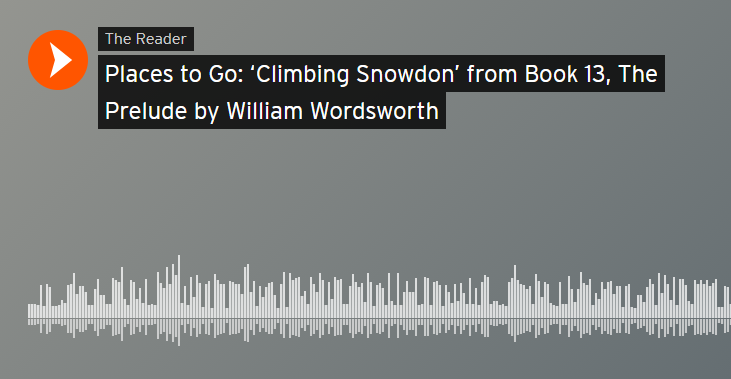Places to Go: Kabuliwala by Rabindranath Tagore
Places to Go is a special feature that The Reader is bringing to you in the hope that it may provide some inspiration on how we can spend our time at home during lockdown. We will be posting extracts from stories which highlight special moments of travel and adventure for you to enjoy. This week Suvi Dogra shares her thoughts on Kabuliwala* by Rabindranath Tagore.
Many of us probably know Nobel laureate Rabindranath Tagore as a poet, and he would have concurred with the assessment. He said in a speech delivered on his 70th birthday, “I have, it is true, engaged myself in a series of activities. But the innermost me is not to be found in any of these. At the end of the journey I am able to see, a little more clearly, the orb of my life. Looking back, the only thing of which I feel certain is that I am a poet (ami kavi).” Also known as the Bard of Bengal, much of Tagore’s work is in Bengali and relatively unknown to the larger literary world. His work in English, of course, is widely read including the short stories that captured human emotions and vulnerability through a diverse range of characters.
I have chosen the opening paragraphs from one of his famous short stories, Kabuliwala, for this week’s Places to Go feature. The first half of the story takes us to the inception of an unusual friendship between a five-year old Mini and the Kabuliwala, a foreigner in those parts. Abundant with an old-world charm, this is a story full of the warmth of human ties, and how a child and a stranger become close friends, all viewed through the eyes of Mini’s doting father.
What happens when a person from a foreign land drops by your doorstep? Mini, a very talkative five-year old, is both intrigued and scared to bits about this strange fruit-seller who dresses so differently from everyone around her. While Mini’s father, an outsider in this atypical friendship, appreciates that someone else too has the patience for Mini’s inquisitive mind. He laments that his timid wife worries about Mini’s well-being and her safety with regard to this stranger, a concern he understands but does not want his daughter to grow up to be feeble.
I couldn’t help but smile envisioning the banter between a little girl and this tall, big-built man who speaks differently, and regales her with jokes. One such moment is when Mini asks the Kabuliwala what was in his bag, and he replies, ‘An elephant.’ Both see the funny side to that, even though many grown-ups around Mini would probably have failed to see the humour. There is something so endearing about this exchange. I can picture the duo laughing their cares away in that moment.
The story also explores Mini’s father’s interactions with the Kabuliwala. Mini’s father, a writer, has an unfulfilled desire to travel, which he usually satiates through his fiction writing. But in the Kabuliwala he finds a man who has seen more of the world than he has, and he wants to know his stories. In a sense, the father too has a friendship of sorts with this foreign man, much like his daughter does. However, the main difference remains, a child’s friendship is innocent, unbound by the considerations of race and class, something that withholds Mini’s father from finding a meaningful connection with the Kabuliwala against his better instincts. The unequal nature of this relationship also comes up when Mini’s father offers money to the Kabuliwala when he sees that Mini has been given a lot of dry fruits by her friend. While they were intended as gifts, Mini’s father, confined by societal norms, does not allow it. The money eventually finds its way back to the home as another gift made to Mini by her friend from Kabul.
I hope you enjoy meeting these characters and journey with them to a different land. And if you find time, do read the rest of the story, easily available on the internet.
*Kabuliwala has also been published as The Cabulliwallah in Stories by Tagore by The Macmillan Company besides many vernacular versions in India. Kabuliwala in translation means a person from Kabul, Afghanistan. In India, the term also referred to a tradesman selling wares door-to-door. The story is from a time when many merchants from Kabul came to India to trade and ended up being away from their families for a long time.
Share
Related Articles

Places to Go: A Pair of Silk Stockings by Kate Chopin
Reader Leader, Julie Gaukroger, takes us on today's audio adventure with an extract from A Pair of Silk Stockings by Kate Chopin.…

Places to Go: ‘Climbing Snowdon’ from Book 13, The Prelude by William Wordsworth
Reader Leader, Sue Colbourn, takes us on today's audio adventure with an extract from The Prelude by William Wordsworth, 'Climbing…

Places to Go: There is Another Sky by Emily Dickinson
The Reader's Liverpool Hub Leader, Michelle Barrett, takes us on today's audio adventure and reads the poem 'There is Another…


